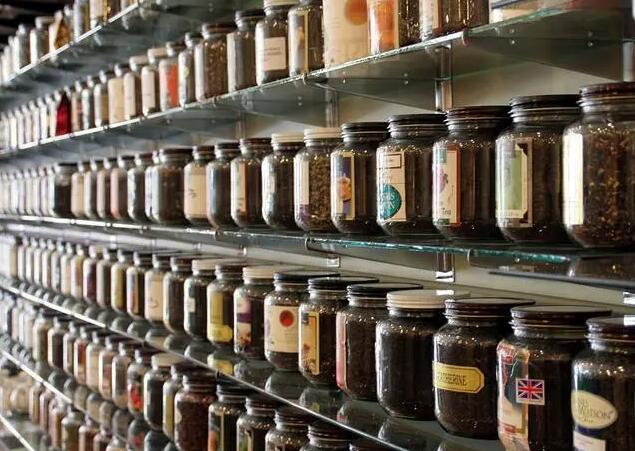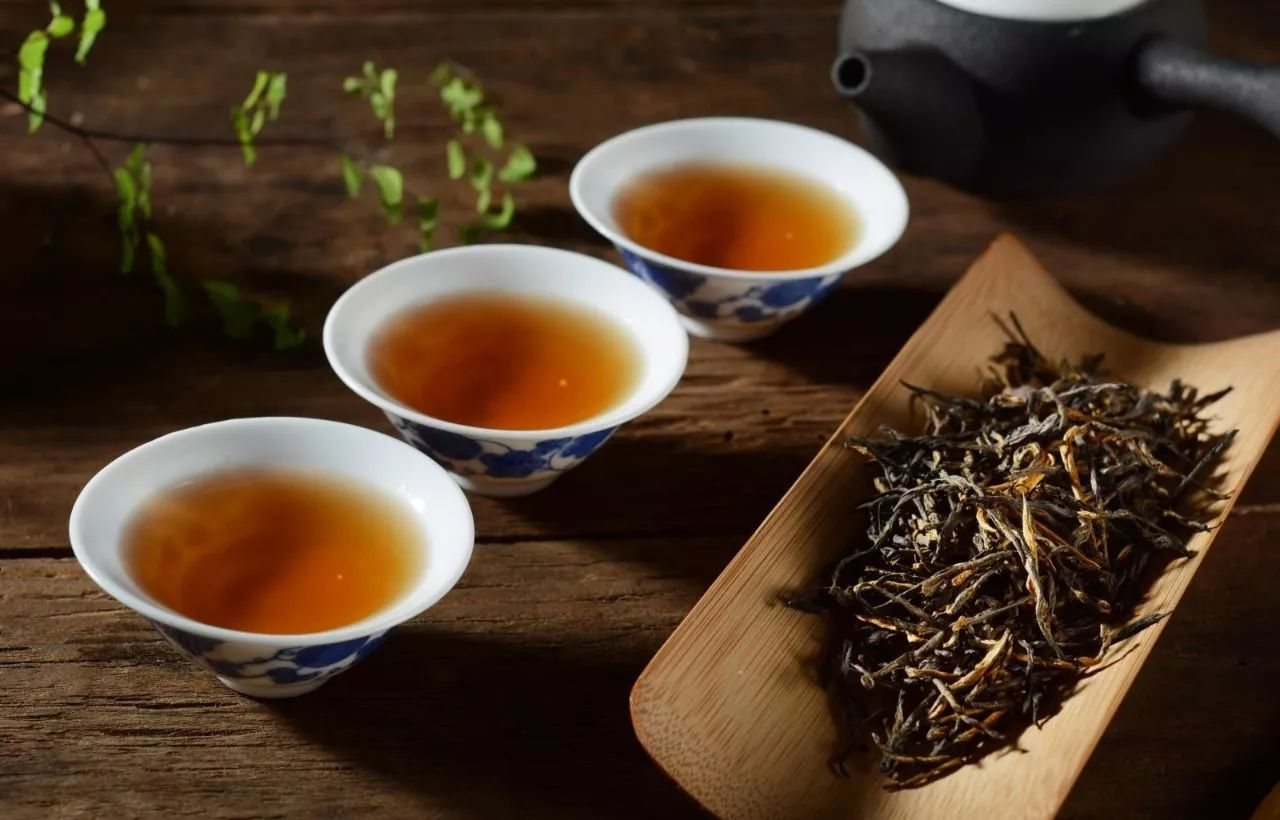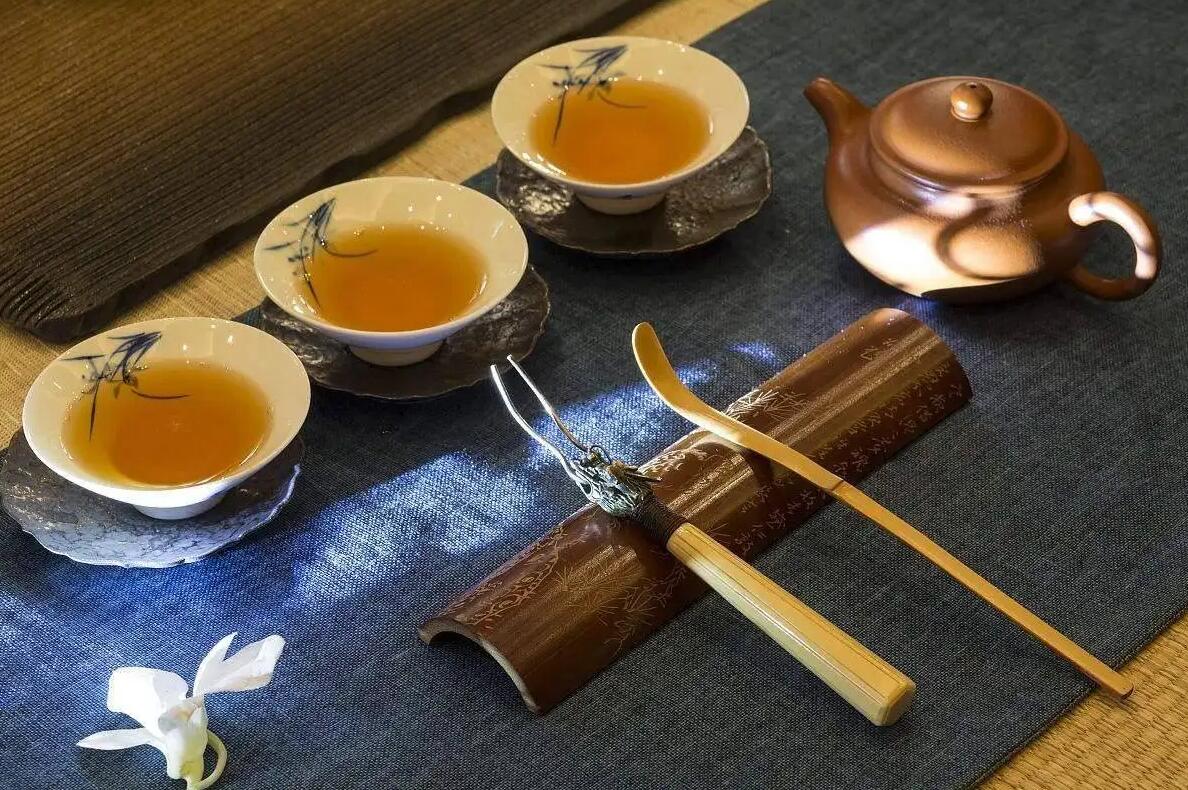Tea is a drink. This is a convention that formed more than a thousand years ago. As drinking tea evolved and became elevated to a spiritual level,eating tea has come to be regarded vulgar. However, in the thousands of years since the discovery of tea, eating tea has never stopped.
Eating tea can mean two things. It can mean eating while drinking tea. What you eat in this case is, of course, not tea itself, but typically some light snacks. Eating tea can also mean directly chewing and swallowing tea leaves, which is not very different from the most primitive use of tea. As a result of modern innovations, chewing tea has also gained much variety.
Over thousands of years, the Chinese has given tea a philosophical spirit. To maintain its purity, the Chinese upper-class has always advocated for drinking tea, not eating tea. According to them, eating is a basic physiological requirement, which has nothing to do with the spiritual. However, the vast majority of the society is the commoners. They don't care about the philosophical or the spiritual. They do whatever pleases them. A great variety of tea snacks is exactly what pleases the commoners.
As a result of regional differences in tastes and eating habits, every place has its own preferred snacks. The most common tea snacks by far are pastries. They can differ significantly in their ingredients, flavour, and shapes. But no matter how much they differ, the essence is always the same. In this respect, Chinese tea pastries are no different from the Western pastries. For the Chinese, tea snacks include much more than pastries. Nuts and dried fruits, including melon seeds, sunflower seeds, walnuts, almonds, peanuts, dried beans, raisin, olives, dates, and more, are also very popular snacks. These tea snacks are very common. They can be seen almost anywhere in China.
The most interesting of all is that, in many places, there are no limitations as to what kinds of food can be tea snacks. Any food can be a tea snack, including anything that should be served on dinner tables.
The most representative of this is the morning tea, also known as dim sum, in Southern China, particularly Hong Kong. Besides the aforementioned snacks, they also serve dumplings, noodles, spring rolls, prawns, chicken feet, meat chops, animal entrails, and various vegetables and fruits on the tea table. It is very difficult to say whether they are having tea or having a meal. In fact, at morning tea, tea is secondary. The main attraction is the great variety of tea snacks.
The commoners are pragmatic. Perhaps we can view their pragmatism as their philosophy of tea drinking. This way of eating tea may be regarded as vulgar, but it has a very strong vitality and appeal. Nowadays, many of the upper-class have learned to love eating tea as well. But they do not give up their way of more elegant tea drinking.
The more accurate "eating tea" of course means chewing and swallowing tea leaves. As you drink tea, chewing and then swallowing the leaves is beneficial for your health. But according to the normal conventions of drinking tea, it is considered vulgar. Therefore, people have found new ways to eat tea, as a way to demonstrate modem people ate more advanced than the primitive people.
The more accurate "eating tea" of course means chewing and swallowing tea leaves. As you drink tea by Yixing clay tea cup, chewing and then swallowing the leaves is beneficial for your health. But according to the normal conventions of drinking tea, it is considered vulgar. Therefore, people have found new ways to eat tea, as a way to demonstrate modem people ate more advanced than the primitive people.
The most convenient way is simply cook tea leaves into dishes. This way avoids the perception of vulgarity, and also shows culinary creativity. Cooking tea into dishes is not invented by modem people. The most famous of such a dish, "Longjing Shrimps", was said be an accidental creation during an imperial inspection in Hangzhou in the Qing dynasty.
One time, the Qianlong Emperor was inspecting the Haigzhou area in civilian clothes. When it suddenly began raining, he sought shelter in a tea farmer's house. The tea former served the guest with Longjing unaware of his identity, Qianlong was delighted have such good tea, He wanted to get some dry tea leaves from the farmer, but was too embarrassed to ask. So he took a handful when the farmer wasn't looking and hid it in his pocket. After the . rain stopped, he bid farewell A to the farmer and continued sightseeing and inspection. Around dusk, Qianlong came to a small restaurant for dinner. He ordered a sauteed shrimp dish. Feeling thirsty, he took out the tea leaves from his pocket and asked the waiter to infuse some tea for him. The waiter noticed the royal dragon emblem on Qianlong sleeve underneath his civilian clothes and realized that the guest is the emperor. He got scared and rushed into the kitchen with the emperor's tea. The chef, who was preparing the shrimp dish at that moment, panicked when he heard the identity of the guest, and mistook the tea as shallot and put it into the dish. With no possibility of recovering the tea, the waiter had no choice but to bring the shrimp dish with tea leaves to the emperor's table. Seeing the tender shrimp meat and the shiny tea leave, the starved Qianlong tasted the dish and praised, "Great dish! Great dish!" Since then, this dish, which was created accidentally in a moment of panic, became famous. There are now countless tea dishes, and new ones are constantly being invented. For some of them, tea is intended to be eaten, while, in some, tea is used as a seasoning, For example, tea eggs, a very popular traditional dish, are stewed in low grade old tea, so Great dish!" Since then,this dish,which was created accidentally in a moment of panic,became famous.
There are now countless tea dishes, and new ones are constantly being invented. For some of them, tea is intended to be eaten, while, in some, tea is used as a seasoning. For example, tea eggs, a very popular traditional dish, are stewed in low grade old tea,so that the rich flavour of tea seeps into ordinary eggs, and make them extraordinary.
In some more modern ways of eating tea, tea is made into various foods. Often in these modern innovations, we can no longer taste or smell tea, even though we do ingest all the nutrition in tea. This has become very different from the tradition meanings of eating tea.



